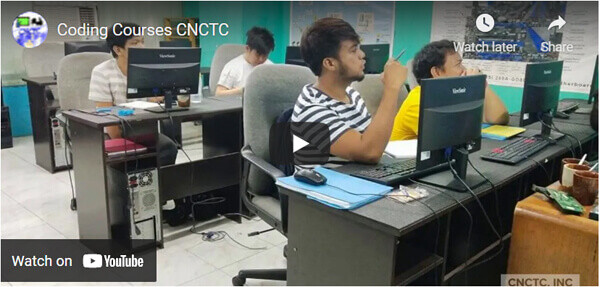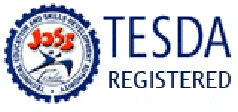
Key Features
- 5 days Instructor-Led Live Online Classroom
- Webex Virtual Class for interactive near classroom experience
- Access to Remote Lab PC for Hands-On activities
- Unlimited Practice exams
- Integrated Courseware in the Learning Management System
- Step by Step guide for challenging hands-on lab activities
- Flexible Schedules – Both Weekdays and Weekends Classes
- Get Trained by Python Programming Expert Trainer with Over 15 Years of Industry Experience
- No. 1 Training Center for Python Programming Courses
- E-learning Access for Pre-course and Post Training Support
- Best Price Guaranteed for Python Programming Courses
Key Features
- 5 days Instructor-Led Face to Face Classroom training
- We are a TESDA Registered Training Center
- Offering Flexible Schedules – Both Weekdays and Weekends Classes
- Get Trained by Python Programming Expert Instructor with Over 15 Years of Industry Experience
- No. 1 Training Center for Python Programming Courses
- We Guarantee Best Price for Python Programming Courses
Key Features
- Gain the technical skills needed in the workplace. 1 on 1 training is the best way to learn
- Quickest way to master any of our course offerings.
- Experience superb hands-on laboratory activities and unobstructed attention from your trainer.
- Guaranteed to start the Training
TRAINEE FEEDBACKSkS
ABOUT THE COURSE:
This hands-on Python programming course will enhance your ability to accomplish coding tasks related to the basics of programming in Python and develop fundamental techniques used in object-oriented programming. It covers general Python computer programming concepts like conditional execution, loops, syntax, semantics, and the runtime environment.
CERTIFICATION EXAM:
PCAP-31-03: PCAP Certified Associate in Python Programming Exam Price: USD 295
ENTRY REQUIREMENTS:
Familiarity with any programming language can help but is not necessarily required. Needs basic computing knowledge.
EMPLOYMENT OBJECTIVES
Upon completion of the course, trainees will be qualified to be a junior python programmer.
PCAP Syllabus
Chapter 1: Control and Evaluations
- Basic concepts
- literals
- Unary and binary, priorities and binding
- Numeric operators
- Bitwise operators
- String operators
- Boolean operators
- Relational operators
- Assignments and shortcut operators
- Accuracy of floating-point numbers
- Basic input and output
- Formatting
- Conditional statements
- Pass instruction
- Simple lists
- Simple strings
- Building loops:
- Expanding loops
- Controlling loop execution
Chapter 2: Data Aggregates
- Implementing and Using Strings
- ASCII, UNICODE, UTF-8, immutability
- escaping using the \ character
- quotes and apostrophes inside strings
- multiline strings, copying vs. cloning
- advanced slicing
- string vs. string
- string vs. non-string
- basic string methods
- upper(), lower(), isxxx(), capitalize(), split(), join
- Functions (len(), chr(), ord())
- escape characters
- Implementing and using lists
- indexing
- slicing
- basic methods (append(), insert(), index())
- functions (len(), sorted())
- del instruction
- iterating lists with the for loop
- in and not in operators
- list comprehension
- copying and cloning
- lists in lists
- matrices and cubes
- tuples
- indexing
- slicing
- building
- immutability
- tuples vs. lists
- similarities and differences
- lists inside tuples
- tuples inside lists
- dictionaries
- building
- indexing
- adding and removing keys
- iterating through dictionaries
- checking key existence
- keys(), items() and values() methods
Chapter 3: Functions and Modules
- Defining and invoking functions and generators
- return and yield keywords, returning results, the None keyword, recursion
- parameters vs. arguments
- positional keyword and mixed argument passing
- default parameter values
- converting generator objects into lists using the list() function
- name scopes
- name hiding (shadowing)
- the global keyword
- lambda functions
- map(), filter(), reduce(), reversed(), sorted() functions and the sort() method
- the if operator
- import directives, qualifying entities with module names, initializing modules
- writing and using modules, the __name__ variable
- pyc file creation and usage
- constructing and distributing packages
- packages vs. directories
- the role of the __init__.py file
- hiding module entities
- Python hashbangs
- using multiline strings as module documentation
Chapter 4: Classes, Objects, and Exceptions
- Defining classes
- superclasses
- subclasses
- inheritance
- Searching for missing class components
- creating objects
- class attributes
- class variables and instance variables
- defining, adding and removing attributes
- explicit constructor invocation
- class methods
- defining and using the self parameter meaning and usage
- inheritance and overriding
- finding class/object components
- single inheritance vs. multiple inheritance
- name mangling
- invoking methods
- passing and using the self argument/parameter
- the __init__ method
- the role of the __str__ method
- Introspection
- __dict__, __name__, __module__, __bases__ properties
- examining class/object structure
- writing and using constructors
- hasattr(), type(), issubclass(), isinstance(), super() functions
- using predefined exceptions
- the try-except-else-finally block
- the raise statement
- the except-as variant
- exceptions hierarchy, assigning more than one exception to one except branch
- adding your own exceptions to an existing hierarchy
- assertions
- the anatomy of an exception object
- input/output basics
- opening files with the open() function
- stream objects
- binary vs. text files
- newline character translation
- reading and writing files
- bytearray objects
- read(), readinto(), readline(), write(), close() methods
COURSE FEE
(₱14500) ₱ 12500(USD302])
COURSE SCHEDULES

Call Us for more information
Tel: (+632) 8285-2936 / (+632) 8736-2032
Smart: 09073576583 / 09993302327
Globe: 09776468236 / 09776932556
Request Course Quotation
Take advantage of CNCTC 's latest interactive Instructor-Led Live Online Training. Online Courses are delivered using WebEx to bring the classroom to your home or at your workplace and can be accessed directly on your own computer with an internet connection. By using Cisco’s WebEx, and integrating our Computer lab facilities, we can provide a near-classroom experience remotely to your own location of choice. Register Now!







